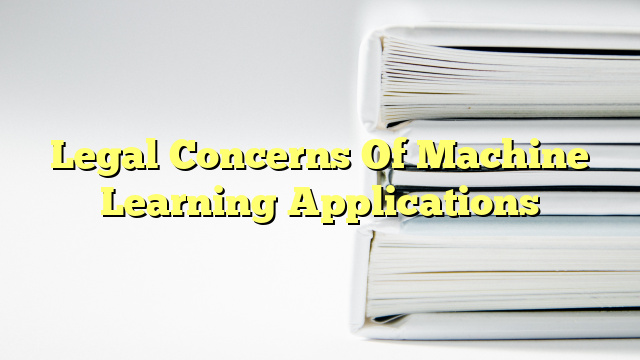Table of Contents
Legal Issues of Machine Learning
Machine learning applications have raised several legal concerns due to their potential impact on individuals and society. Some of the key legal issues include:
- Data Privacy and Security: Machine learning relies on large amounts of data, often personal and sensitive information. Ensuring the privacy and security of this data is crucial to comply with data protection laws.
- Discrimination and Bias: Machine learning algorithms can unintentionally perpetuate biases and discrimination present in the data they are trained on. This raises concerns about fairness and potential violations of anti-discrimination laws.
- Intellectual Property: Machine learning models and algorithms can be considered intellectual property, leading to questions of ownership, licensing, and infringement.
- Liability and Accountability: When machine learning systems make decisions or predictions that have legal consequences, it becomes challenging to assign liability and determine who is accountable for any harm caused.
Legal Issues of AI
Artificial intelligence (AI) encompasses a broader range of technologies, including machine learning. Some additional legal concerns specific to AI applications are:
- Regulatory Compliance: AI systems may need to comply with specific regulations depending on the industry or domain they are used in. For example, healthcare AI applications must adhere to strict medical regulations.
- Autonomous Decision-Making: AI systems that can make decisions autonomously raise questions about liability and accountability, similar to machine learning systems.
- Transparency and Explainability: AI algorithms can be complex and difficult to understand, making it challenging to explain the reasoning behind their decisions. This lack of transparency can lead to legal and ethical concerns.
Ethical Issues of Machine Learning Applications
In addition to the legal concerns, machine learning applications also raise ethical issues that need to be addressed. Some of the main ethical concerns include:
- Fairness and Bias: Machine learning algorithms can perpetuate biases present in the data, leading to unfair treatment of individuals or groups. Ensuring fairness and mitigating bias is crucial for ethical machine learning.
- Privacy and Consent: Collecting and using personal data for machine learning purposes raises questions about consent and privacy. Users must be informed and have control over how their data is used.
- Accountability and Transparency: Machine learning systems should be accountable for their decisions and actions. Transparency in how algorithms work and the data they use is essential for building trust and ensuring ethical behavior.
Main Concerns in Using Machine Learning Systems
When using machine learning systems, there are several main concerns that organizations and individuals should be aware of:
- Reliability and Accuracy: Machine learning models are not infallible and can make mistakes. Organizations must consider the potential risks and limitations of relying on these systems for critical decisions.
- Data Quality and Bias: Machine learning models heavily depend on the quality and representativeness of the data they are trained on. Biased or incomplete data can lead to inaccurate and unfair outcomes.
- Regulatory Compliance: Organizations must ensure that their machine learning systems comply with relevant laws and regulations, particularly regarding data privacy and security.
- Ethical Considerations: Beyond legal compliance, organizations should also consider the ethical implications of their machine learning applications and strive to mitigate any potential harm.

